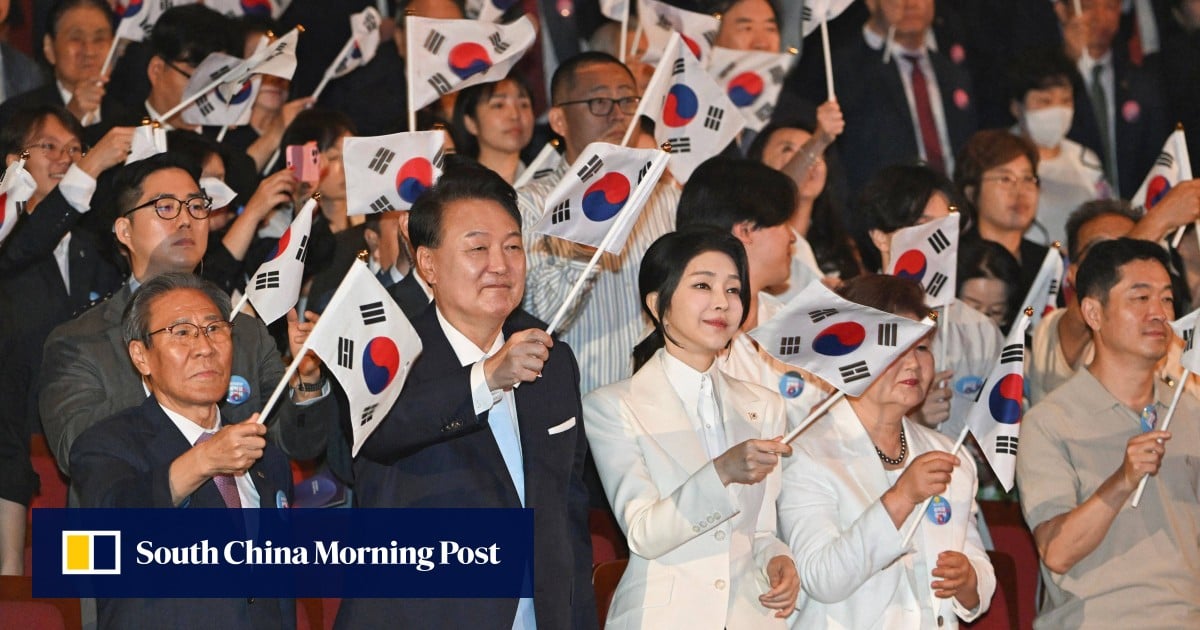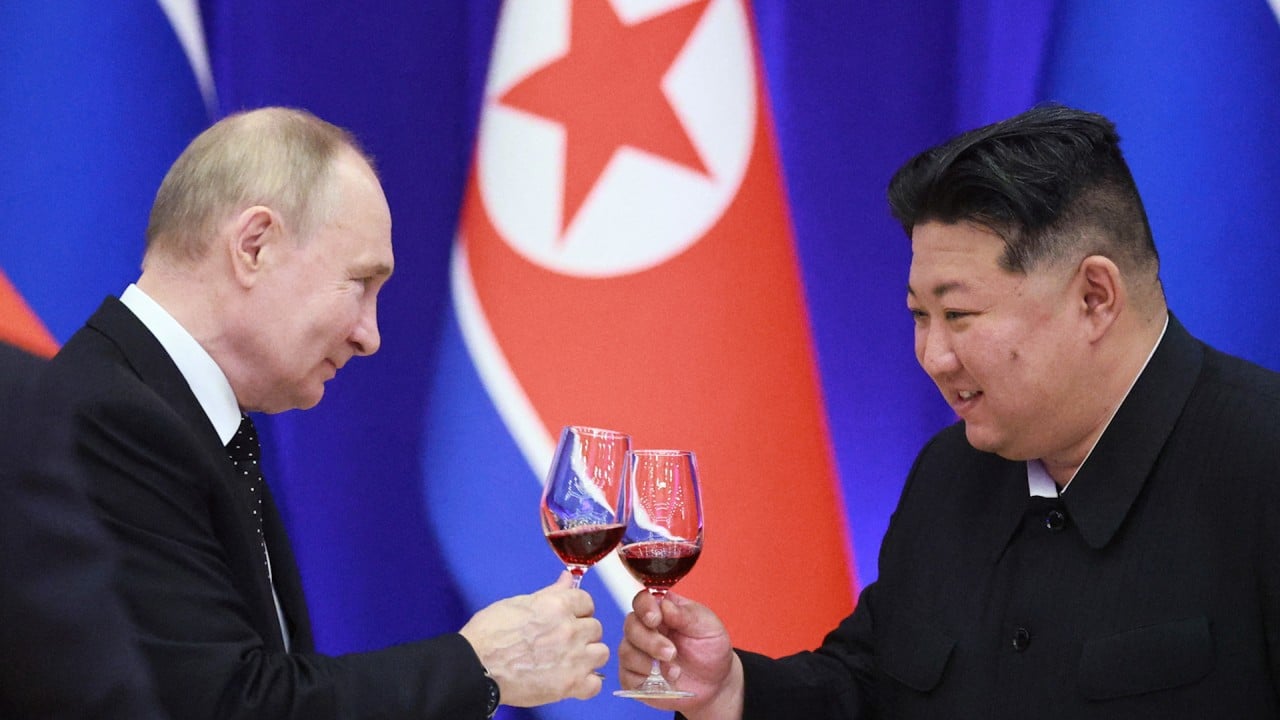South Korean President Yoon Suk-yeol offered aid, dialogue and a path to unification to North Korea, making new approaches to the neighbour that has berated him with insults and threatened to annihilate his government in Seoul.
In a speech on Thursday to mark end of Japanese colonial rule over the Korean peninsula in 1945, Yoon called unification an “unfinished task,” which he aims to pursue on a freedom-based path.
“Only by firmly defending our freedom can we become the leading force driving free and democratic unification,” Yoon said. He also pledged to raise awareness about human rights abuses in North Korea, which has bristled for years at criticism of its rights record.
North Korean leader Kim Jong-un started the year with a strident tone by eliminating the concept of peaceful unification from his state’s national policy and abolishing laws for economic cooperation with South Korea, driving a wedge deeper between the neighbours.
This has led to some speculation that Kim has turned the corner on his bellicose outbursts and is readying for battle.
But Yoon reiterated he could offer rewards for moves to roll back Kim’s atomic ambitions, saying “we will begin political and economic cooperation the moment North Korea takes just one step toward denuclearisation.”
He also proposed setting up a so-called Inter-Korean Working Group that could take up issues ranging from relieving tensions to economic cooperation.
Kim this month ratcheted up friction by displaying hundreds of new mobile missile launchers to deploy at the border that can deliver conventional or nuclear strikes on South Korea and US bases in the country.
North Korea has shown no signs of being ready to talk. Kim has strengthened his hand by providing munitions to Russia in exchange for aid propping up his economy, the US and South Korea have said.
Kim’s regime this month turned down an offer for humanitarian assistance from Seoul after North Korea was hit by heavy floods from late July, saying enemies are enemies.
“Even though the North Korean regime rejected our offer yet again, we will never stop making offers of humanitarian aid,” Yoon said.
Bringing the two Koreas together, either through the collapse of the Kim regime or a peaceful reconciliation comes with enormous costs as well as opportunities for South Korea.
Its population of 52 million, which is ageing and dwindling, could get a jolt by absorbing North Korea’s 26 million people. This would allow South Korean companies to benefit from low-cost workers and open new avenues for commerce, according to analysis by Bloomberg Economics.
But, the budget office for South Korea’s parliament said in a 2015 report that Seoul would need to spend 4.8 quadrillion won (US$3.45 trillion) over 50 years to boost the North’s income level to 66 per cent of the average income of the South.
The August 15 anniversary for the end of Japanese rule with its World War II surrender is one of the few days marked in North and South Korea. They have both offered criticism of prominent Japanese politicians on the day visiting Tokyo’s Yasukuni Shrine, where 14 Class-A war criminals are honoured alongside other war dead.
Three members of Prime Minister Fumio Kishida’s cabinet – Economic Security Minister Sanae Takaichi, Defence Minister Minoru Kihara and Economic Revitalisation Minister Yoshitaka Shindo – visited Yasukuni on Thursday, Kyodo News reported.
The shrine is seen by many across Asia as a symbol of Japan’s past militarism. South Korea expressed disappointment over the officials’ visit, its foreign ministry said in a statement.


